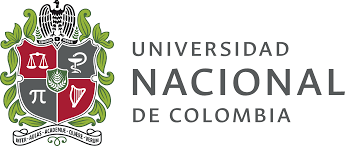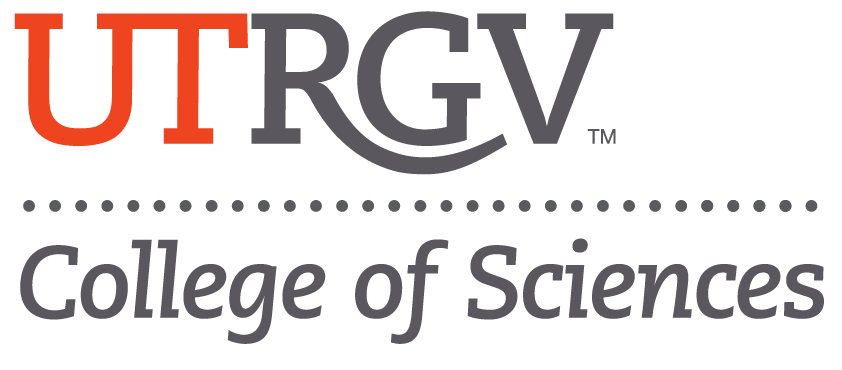JUUNTOS UTRGV-UNAL
 |
 |
 |
Date: Wednesday, April 20, 2022 Colombia: 2 pm Texas: 2 pm
Title: Post-blowup Dynamics for the Nonlinear Schrödinger Equation.
Speaker: Dr. José Escorcia .
Affiliation: Tecnológico de Antioquia
Abstract: The Nonlinear Schrödinger equation (NLS) arises in different physical models, e.g., the nonlinear optics, Bose-Einstein condensate and fluid dynamics. We study the 1D Nonlinear Schrödinger equation (NLS) with the critical-case focusing-nonlinearity. It is known that solutions, whose mass exceeds a critical value, form a singularity in finite time. This singularity is regularized by adding a nonlinear damping term, therefore, extending the solution to post-blowup times. Our goal is to study the asymptotic form of post-blowup solutions in the limit of vanishing damping coefficient. We address the approximation based on the adiabatic theorem, whose extension to the post-blowup region is often assumed in the literature. Our findings contradict this expectation demonstrating that the adiabatic theorem breaks down strongly at the beginning of the post-blowup region. Also, our simulations suggest a quasi linear regime in the post-blowup dynamics, and the prevalence of the universal profile throughout the whole post-blowup dynamics. It follows that, in the limit of vanishing damping, all the collapsed mass must disappear (instantly radiate to infinity) at the blowup time.
This research is in collaboration with Dr. Alexei Mailybaev, IMPA, Rio de Janeiro, Brasil.
*************************************************************************************************************
Date: Monday, March 28, 2022 Colombia: 2 pm Texas: 1 pm
Title: An existence result concerning a semipositone cuasilinear problem in a ball.
Speaker: Dr. Emer Lopera.
Affiliation: Profesor del Departamento de Matematicas Universidad Nacional de Colombia, sede Manizales
Abstract: The aim of this talk is to present a new result in partial differential equations concerning the existence of at least one positive, radial solution for a semi-positone cuasilinear problem. Indeed, we studied the homogeneous Dirichlet problem in the unit ball in ℝ^𝑁 (𝑁 ≥ 2) associated to the partial differential equation −Δ𝜙 𝑢 = 𝜆 𝑓(𝑢).
*****************************************************************************************************************************************
Date: Monday, March 7, 2022 Colombia: 2 pm Texas: 1 pm
Speaker: Dr. W. A. Zuniga-Galindo
Affiliation: Lokenath Debnath Endowed Professor School of Mathematical and Statistical Sciences University of Texas Rio Grande Valley
Title: Ultrametricity: Perspectives
Abstract: The purpose of the talk is to discuss the idea that the description of many natural phenomena and some machines requires ultrametric (hierarchical) models. The non-Archimedean mathematics provides the right framework to formulate theories where the hierarchy plays a central role. In the first part of the talk, we will review the emergence of ultrametricity in physics, and we will explain a classic paradigm in complex systems. In the second part we will introduce the basic aspects of p-adic analysis. The third part is dedicated to the heat equations on p-adics and their connection with complex systems. Finally, we will present some aspects of our latest work on cellular neural networks in the p-adic context.
************************************************************************************************************************************
Date: Monday, February 28, 2022 Colombia: 2 pm Texas: 1 pm
Title: On a dual mixed method for solving the Stokes problem with non-null source terms: a priori and a posteriori error estimates.
Speaker: Dr. Rommel Bustinza Pariona Departamento de Ingenieria Matematica Facultad de Ciencias Fisicas y Matematicas Universidad de Concepcion
Abstract: In this talk, we focus our attention in the Stokes flow with non homogeneous source terms, formulated in dual mixed form. For the sake of completeness, we begin recalling the corresponding well-posedness at continuous and discrete levels. After that, and with the help of a kind of a quasi Helmholtz decomposition of functions in H(div), we develop a residual type a posteriori error analysis, deducing an estimator that is reliable and locally efficient. Finally, we provide numerical experiments, which confirm our theoretical results on the a posteriori error estimator and illustrate the performance of the corresponding adaptive algorithm, supporting its use in practice.
**********************************************************************************************************************************
Date: Monday, February 21, 2022 Colombia: 2 pm Texas: 1 pm
Títle: Ecuaciones semilineales y cuasilineales desde los métodos variacionales
Speaker: Profesora Diana Sánchez
Affiliation: Departamento de Matemáticas Universidad Nacional de Colombia, sede Manizales
Abstract: En esta charla se introduce el concepto de funciones minimizantes para ciertos funcionales de energía y su estrecha relación con problemas de valores en la frontera, a través de la presentación de unos hechos históricos que nos llevan a la aparición de los espacios de Sobolev.
************************************************************************************************************************************
Date: February 14, 2022, Colombia: 2 pm Texas: 1 pm
Tile: Viral diffusion of SARS-CoV-2: modeling, analysis and simulation
Speaker: Dr. Zhaosheng Feng
Affiliation: School of Mathematical and Statistical Sciences, University of Texas-RGV, Edinburg, Texas, USA
Abstract: A reaction-diffusion system is formulated to characterize the infection process of the severe acute respiratory syndrome coronavirus 2 (SARS-CoV-2) in a heterogeneous environment. We consider the well-posedness of the solution, derive the basic reproduction number, discuss the global stability of uninfected steady state and explore the uniform persistence for the model. We further propose a spatial diffusion SARS-CoV-2 infection model with humoral immunity and spatial independent coefficients and analyze the global attractivity. Numerical simulations are performed to illustrate our theoretical results which reveal that diffusion, spatial heterogeneity and incidence types have evident impact on the SARSCoV-2 infections and these key factors cannot be ignored during clinic treatments.
************************************************************************************************************************************
Date: Monday, February 7, 2022 Colombia: 2 pm Texas: 1 pm
Title: Well-posedness and Controllability Aspects of the cubic fourth order Schrodinger equation on a star graph structures
Speaker: Dr. Fernando Andres Gallego
Affiliation: Profesor del Departamento de Matematicas Universidad Nacional de Colombia, sede Manizales
Abstract: In this talk, we present some recent results related to the wellposedness and controllability results related to the cubic fourth order Schrodinger equation on star graph structure G. Here, we consider G composed by N edges parameterized by half-lines (0, +∞) and/or (ai , bi ) attached with a common vertex ν. With this structure we study the well-posedness and some controllability aspects of a dispersive model on star graphs with three appropriated vertex conditions by using the boundary forcing operator approach, more precisely, The arguments presented in this work has prospects to be applied for others nonlinear dispersive equations on the context of star graphs.
************************************************************************************************************************************